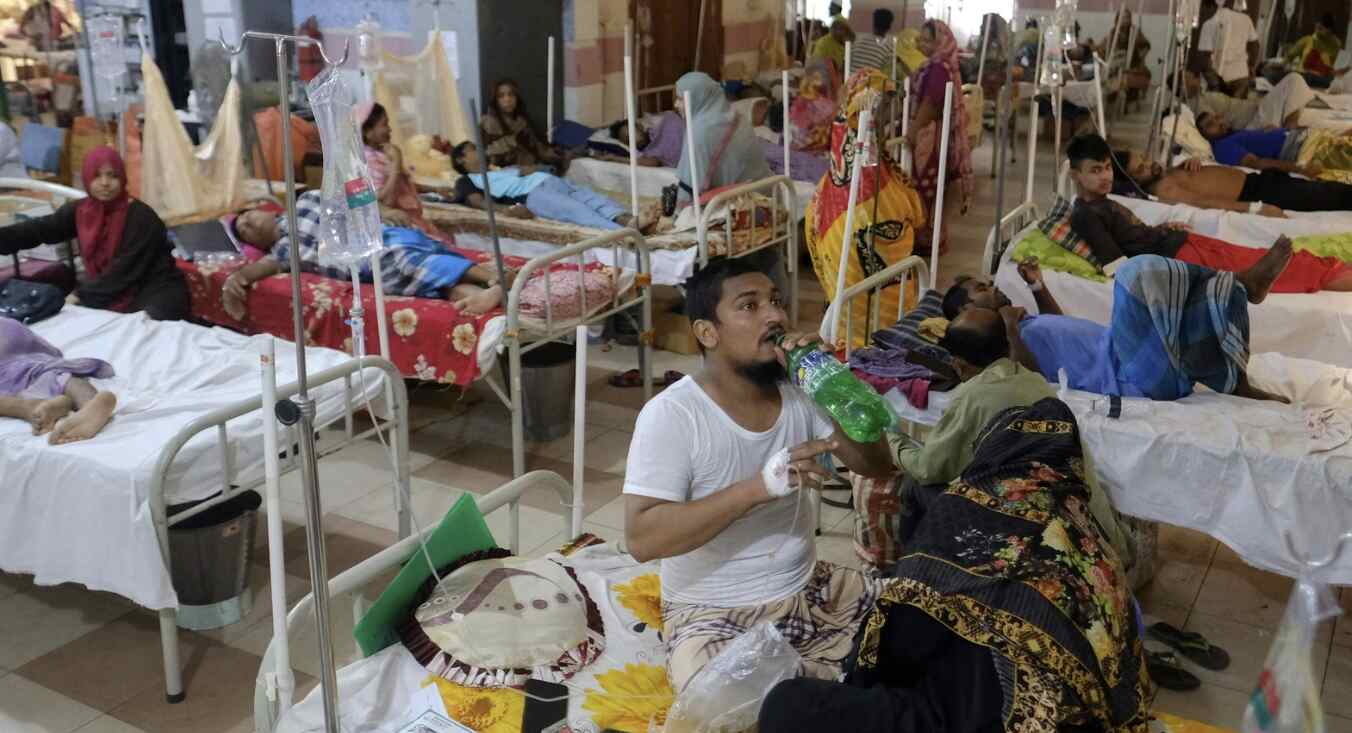Dengue Outbreak in Bangladesh: Record-breaking Cases, Alarming Fatalities, and a Concerning Future
Bangladesh battles severe dengue outbreak, with nearly 100,000 cases reported this year, close to 2019's record-breaking numbers. Deaths and hospitalizations are on the rise, prompting calls for immediate action.
Bangladesh is currently grappling with a severe dengue outbreak, with over 99,994 cases reported this year, according to a recent report by the Dhaka Tribune. In a single day, 2,134 new cases were recorded, along with 10 fatalities.
This surge in dengue cases comes close to the record-breaking numbers witnessed in 2019, when the country saw 101,354 cases, marking the highest number of dengue-positive cases in a single year since the disease was first identified in Bangladesh. The Directorate General of Health Services (DGHS) revealed that 785 dengue patients were admitted to hospitals in Dhaka, while 1,349 were admitted to hospitals outside the city.
Encouragingly, the DGHS statement also mentioned that the total number of dengue patients currently receiving treatment stands at 7,582, with 3,532 being treated in Dhaka and 4,050 outside the capital. Tragically, 476 deaths have been reported this year due to dengue, making it the deadliest year since the disease was first detected in 2000.
In comparison, 281 deaths were recorded last year. The DGHS statement further highlights that out of the total cases, 37,640 patients were female, and 62,354 were male. Shockingly, 272 female patients and 204 male patients lost their lives due to the disease. Experts warn that the ongoing dengue outbreak may continue until November, with a significant increase in the Aedes mosquito population this year.
The month of November is historically considered a peak period for dengue cases, and last year's outbreak continued until this time. Adding to concerns is the prediction by the meteorological office of extended rainy weather during October and November, creating favorable conditions for mosquito breeding.
Health experts, including entomologists, express deep concern over the rising cases and fatalities, suggesting an alarming trend. They anticipate a further deterioration of the situation in the coming months and advocate for a massive campaign against all types of mosquitoes. Amidst this crisis, the World Health Organization (WHO) has called for swift action to control the mosquito vector population and reduce individual exposure.
The WHO emphasizes the importance of using mosquito repellents and wearing protective clothing to minimize the risk of dengue transmission. It attributes the higher incidence of dengue in Bangladesh to a combination of unusual episodic rainfall, high temperatures, and humidity, contributing to an increased mosquito population.
According to the WHO, the reported number of dengue cases this year is the highest since records began in 2000. The organization states that the peak of the outbreak has likely not yet been reached, with dengue cases steadily increasing since May 2023.
In another news development, two agriculture officers from Mandya district in Bengaluru have been arrested by the Criminal Investigation Department (CID) in connection with a "fake letter" case. The specifics and details surrounding this arrest are not provided in the available information.
As Bangladesh continues to combat the dengue outbreak, the government and relevant authorities must prioritize public health measures, including mosquito control programs and awareness campaigns. Efforts must be intensified to minimize the impact of this deadly disease on the population, especially during the upcoming months when the outbreak is expected to persist.




